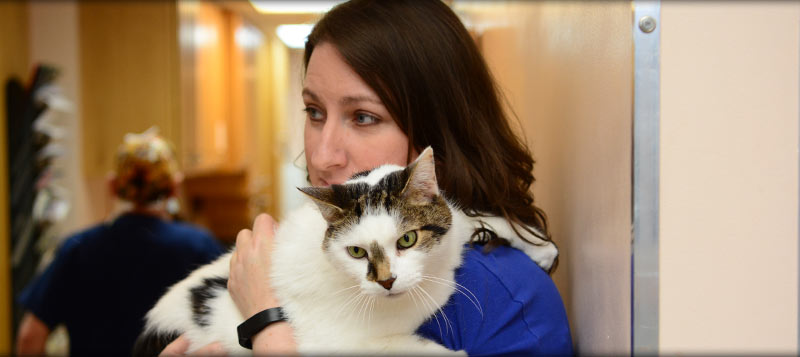Senior Pet Care
Do You Have a Senior Pet?
With today’s advancements in medicine, pets not unlike their owners, are living longer lives. Unlike humans however a pet is considered senior around the age of 7 years. It’s hard to really pin point an exact age in a pet but there are some sources available to help determine the approximate age of your pet in human years.

For example, here are a couple of tables from the American Veterinary Medical Association:
| Cat Years | Human Years |
| 7 | 45 |
| 10 | 58 |
| 15 | 75 |
| 20 | 98 |
| Dog Years | Human Years (*dog size lbs) |
| 7 | Small – Medium: 44-47 |
| Large – Very large: 50-56 | |
| 10 | Small – Medium: 56-60 |
| Large – Very large: 66-78 | |
| 15 | Small – Medium: 76-83 |
| Large – Very large: 93-115 | |
| 20 | Small – Medium: 96-105 |
| Large: 120 |
The oldest recorded age of a cat is 34 years. The oldest recorded age of a dog is 29 years.
Regular Wellness Care For Senior Pets Is Important
Since our pets age faster than we do, we recommend bi-annual wellness visits for all of our pets. These twice a year visits become even more important in our senior animals. In older pets, 6 months can be the equivalent of 2 years in some cases. This is why it is important to monitor our senior pets on a more regular basis to make sure that we are catching even the smallest change. Prevention is the key to a long and healthy life in our pets, just like in humans. There are many common diseases in older pets that if treated early, can help them live longer lives.
If you have an older pet here are some things to look for:
- Has there been a change in attitude or behavior?
- Are they more lethargic or less active?
- Have their eating habits changed?
- Are they losing or gaining weight?
- Are they more vocal?
- Are they slow to get up, hesitant to use stairs, or jump in the car?
- Are there any changes to thirst or urination habits?
If you answered yes to any of the above questions, this could be a sign of normal aging or it could signify an underlying problem.If your pet is experiencing any of these symptoms, please contact us to set up an appointment for a thorough review of your pet’s history at home and a comprehensive examination.
